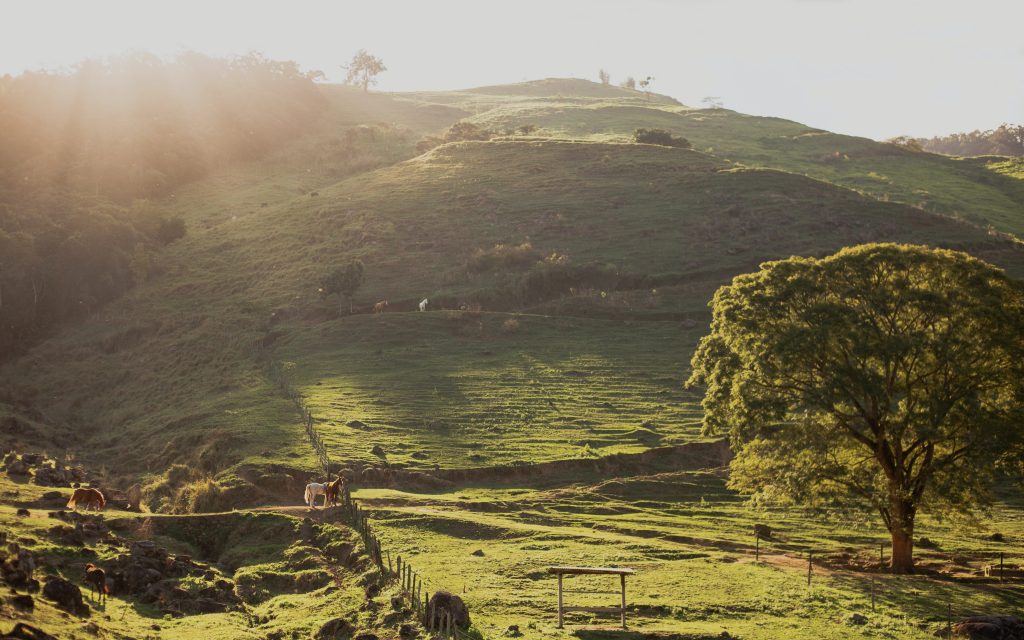God’s Grandeur
Gerard Manley Hopkins (1844-1889)
The world is charged with the grandeur of God.
It will flame out, like shining from shook foil;
It gathers to a greatness, like the ooze of oil
Crushed. Why do men then now not reck his rod
Generations have trod, have trod, have trod;
And all is seared with trade; bleared, smeared with toil;
And wears man’s smudge and shares man’s smell: the soil
Is bare now, nor can foot feel, being shod.
(1877)
***
Psalm 148:8-14 (NIV)
And for all this, nature is never spent;
There lives the dearest freshness deep down things;
And though the last lights off the black West went
Oh, morning, at the brown brink eastward, springs —
Because the Holy Ghost over the bent
World broods with warm breast and with ah! bright wings.
Praise the Lord from the earth,
you great sea creatures and all ocean depths,
lightning and hail, snow and clouds,
stormy winds that do his bidding,
you mountains and all hills,
fruit trees and all cedars,
wild animals and all cattle,
small creatures and flying birds,
kings of the earth and all nations,
you princes and all rulers on earth,
young men and women,
old men and children.
Let them praise the name of the Lord,
for his name alone is exalted;
his splendor is above the earth and the heavens.
And he has raised up for his people a horn,
the praise of all his faithful servants,
of Israel, the people close to his heart.
***

***
Gerard Manley Hopkins was a poet and priest of the Victorian era, widely regarded to be one of its most preeminent, especially for his radical and anachronistic style. Upon entering the Jesuit novitiate in 1868 at the age of 24, he burned most of his poems as a display of piety, though, thankfully, he did not stop writing poetry thereafter.
Many of his poems were published posthumously, establishing him as a particularly innovative manipulator of prosody. ‘God’s Grandeur’ is a marvellous example of his ‘sprung rhythm’, an ebullient rhythm that is meant to mimic human speech. Much of it takes reference from alliterative medieval verse and English folk songs. The orality of Hopkins’ poems complements the jubilation of his subject matter well: Hopkins uses a blend of visual and tactile images to draw on the ubiquity of God’s presence, ‘[flaming] out’ like ‘shining from shook foil,’ ‘[gathering] to greatness’ like ‘the ooze of oil’.
The poem’s turn to the incessantness of human conflict continues on in his playful prosody, replete with assonance, alliteration, and rhyme, before setting up a diametric contrast with the fact that ‘nature is never spent’, the ‘dearest freshness deep down things’. The sunrise, to Hopkins, ‘springs’, and the Holy Spirit, envisioned as a dove, ‘broods with warm breast and with ah! bright wings.’
Hopkins was a proponent of the notion that the book of Nature and book of Revelation (the Bible) are to be read alongside one another, an explicit recovery of the divine presence of God in His creation. As a hymn of creation, ‘God’s Grandeur’ is a response to Psalm 148, a procession of praise from the earth and the ocean depths, the lightning and hail, the mountains and hills, all the way to His animals and His people. Where Hopkins transforms this Psalm is in his effusive manipulation of prosody, one that results in the joyous burst of elation when read aloud.
In thinking of the totality of God’s creation, and as created things, how can we remember what it is to praise the Lord?
***
© Gerard Manley Hopkins

